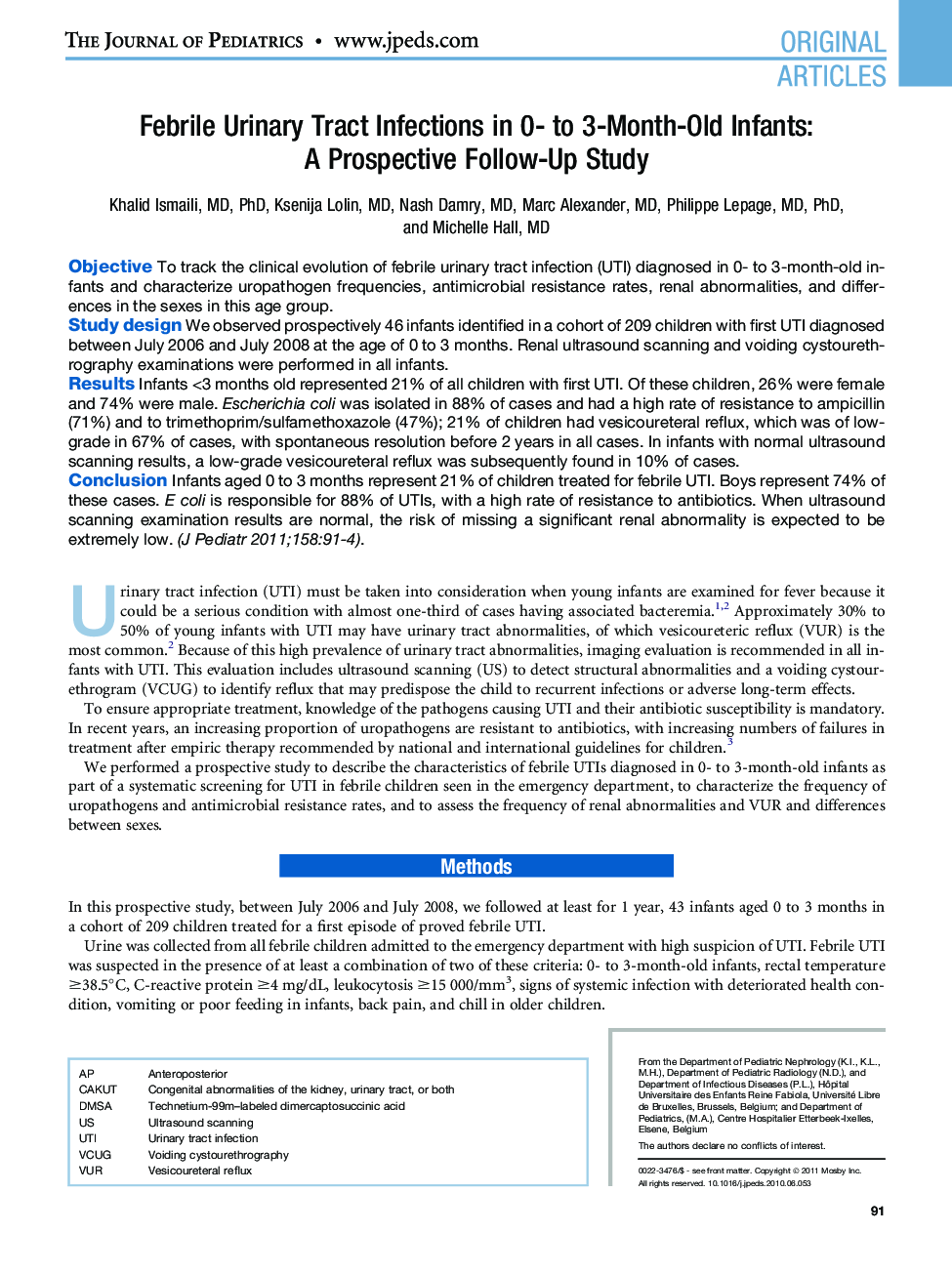| Article ID | Journal | Published Year | Pages | File Type |
|---|---|---|---|---|
| 4166735 | The Journal of Pediatrics | 2011 | 4 Pages |
ObjectiveTo track the clinical evolution of febrile urinary tract infection (UTI) diagnosed in 0- to 3-month-old infants and characterize uropathogen frequencies, antimicrobial resistance rates, renal abnormalities, and differences in the sexes in this age group.Study designWe observed prospectively 46 infants identified in a cohort of 209 children with first UTI diagnosed between July 2006 and July 2008 at the age of 0 to 3 months. Renal ultrasound scanning and voiding cystourethrography examinations were performed in all infants.ResultsInfants <3 months old represented 21% of all children with first UTI. Of these children, 26% were female and 74% were male. Escherichia coli was isolated in 88% of cases and had a high rate of resistance to ampicillin (71%) and to trimethoprim/sulfamethoxazole (47%); 21% of children had vesicoureteral reflux, which was of low-grade in 67% of cases, with spontaneous resolution before 2 years in all cases. In infants with normal ultrasound scanning results, a low-grade vesicoureteral reflux was subsequently found in 10% of cases.ConclusionInfants aged 0 to 3 months represent 21% of children treated for febrile UTI. Boys represent 74% of these cases. E coli is responsible for 88% of UTIs, with a high rate of resistance to antibiotics. When ultrasound scanning examination results are normal, the risk of missing a significant renal abnormality is expected to be extremely low.
